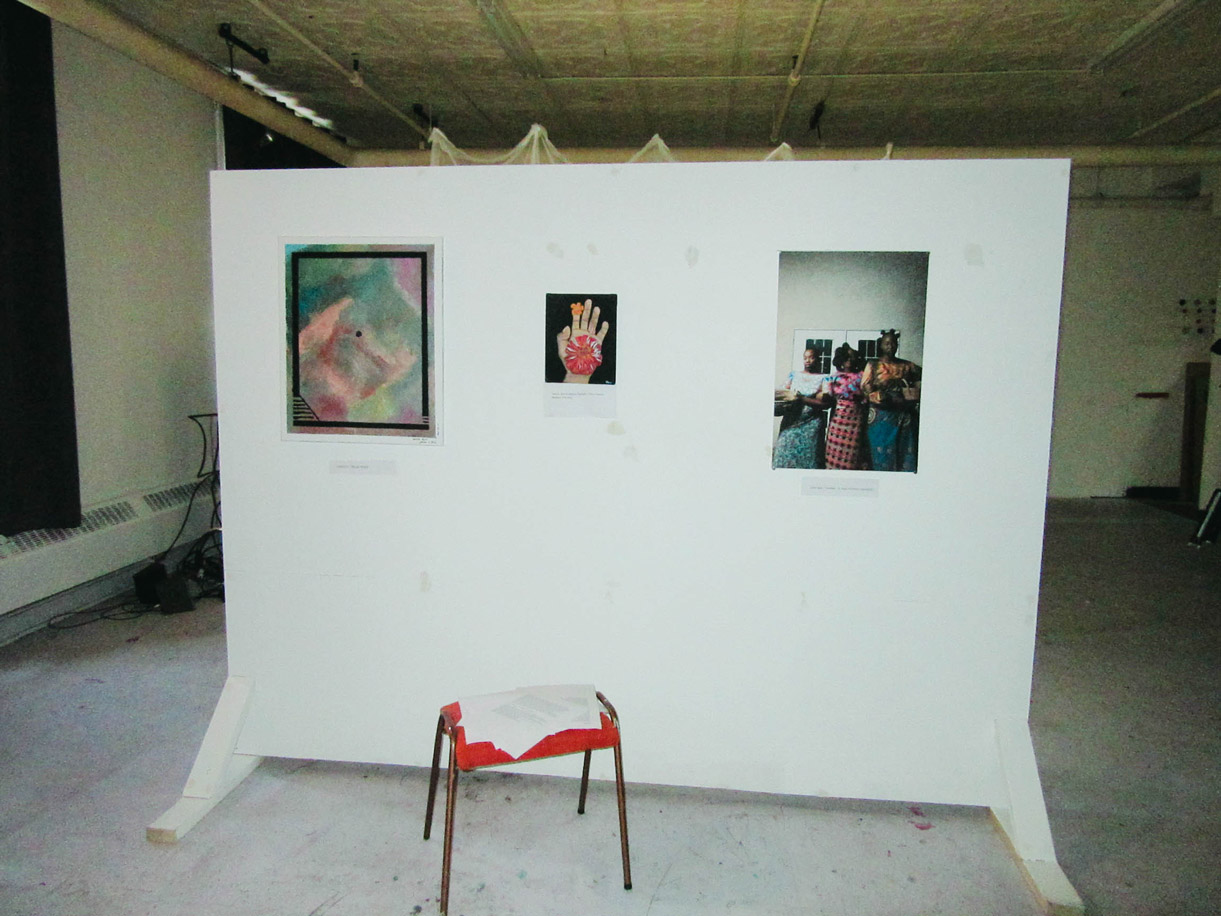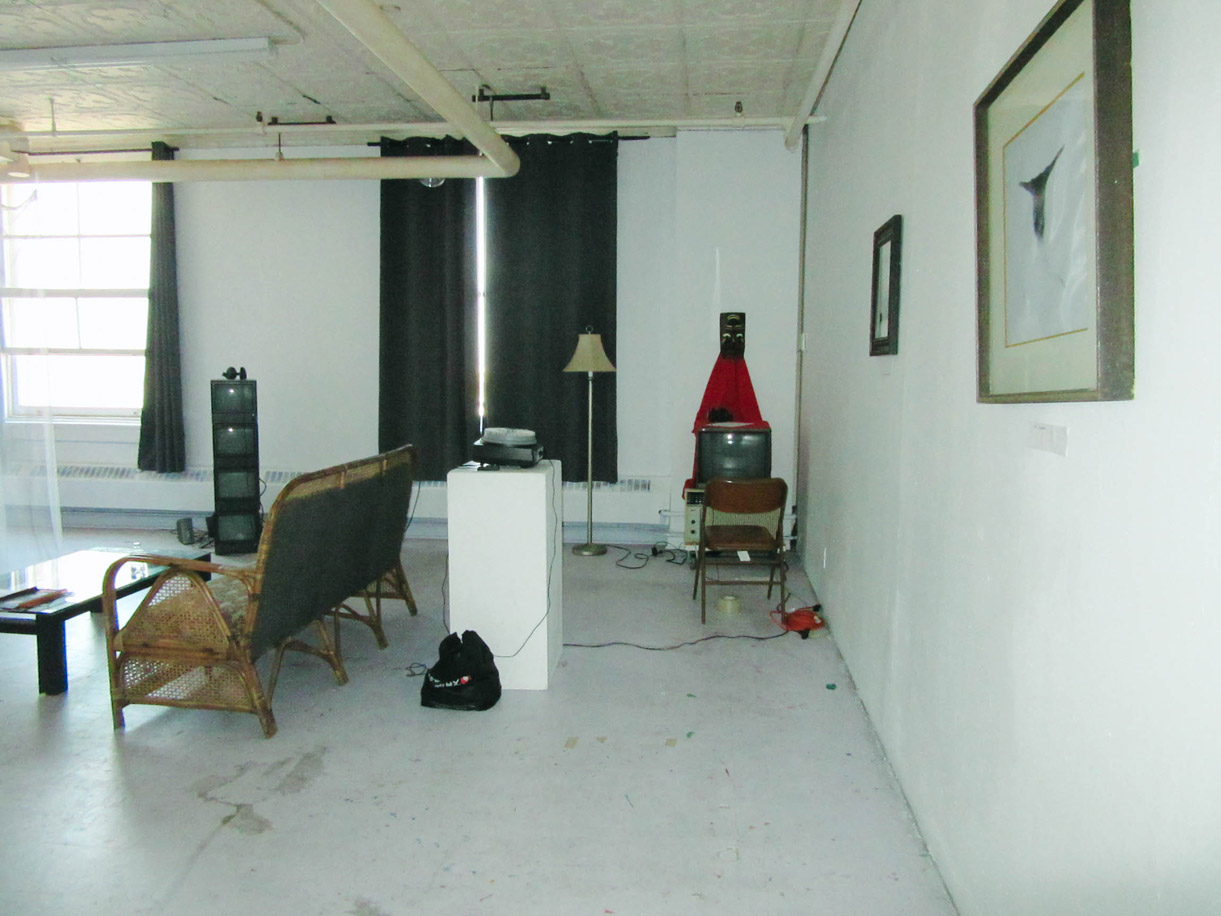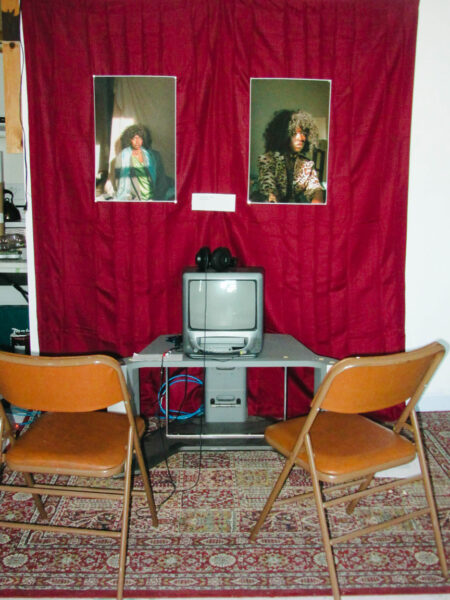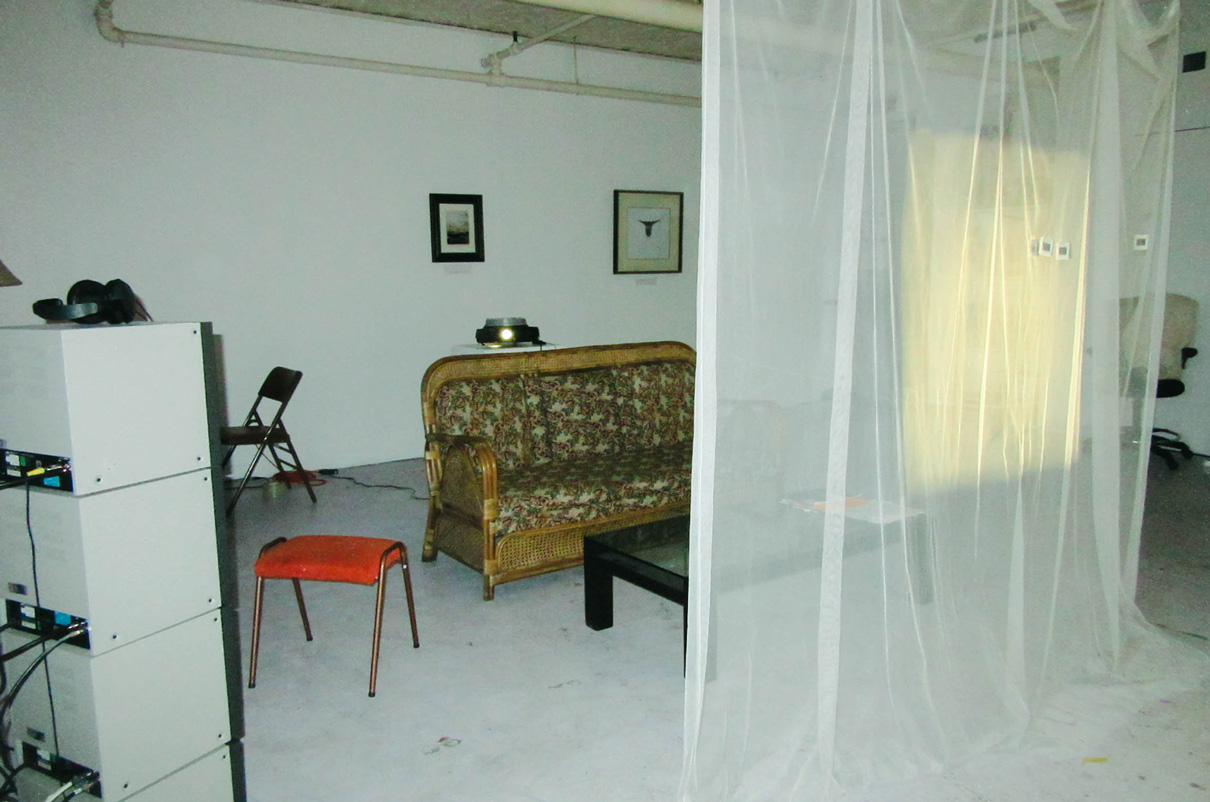Credit
Author: Elah Ajene
An art showcase and collective exploration of the theme “Home” by Rêves
A monadic perspective of home: four walls, wooden countertops, warm meals.
It is a narrative that, for the most part, does not accurately reflect the full lived experience of many.
The concept of home is multifaceted and ever-evolving. How we share space, yet home varies for individuals, is a dynamic process that shifts between the influences that unite us and those that create divisions based on lived experiences.
Through my nighttime exploration of Home, an exhibition by Rêves Magazine at Take Home Gallery in the heart of Exchange District, I explore these various themes.
Through Film and Friendship
For many of the featured artists, exploring the concept of ‘home’ demanded introspection.
Eden’s film, Flower Body, navigates her journey of self-discovery within the Black diaspora— where she began forming connections and relationships within the community.
“Growing up pretty displaced throughout my life, I never was given the opportunity to truly experience what a single space that I’m able to constantly go to that feels like home to me,” she said.
Home, she learned, was not just a physical space; it was something deeper, more profound, transcending the four walls of a familial house.
Eden spoke about her best friend, Nyx, who opened their physical home to her but also created a mental space where Eden felt like she truly belonged.
“With them, I found a sense of connection, love, and support, making anywhere we were together feel like home,” she said.

You washed up on the shore from the crystal tides
And I knew we were similar
Once I saw those tired green eyes
In Flower Body, Eden employs an experimental approach, capturing spontaneous moments that resonate with her. However, the heart of her project lies in her crafted narrative and poetry.
“I love poetry. I love writing. I love expressing myself through writing,” she said.
I’m a neophyte when it comes to films, so it’s not surprising that Eden’s poetry is what initially captivated me.
Poetry, as Eden’s chosen medium for self-expression, allows her to convey the essence of her journey —finding where in the community she felt truly supported and loved, where she could define her own concept of home.

Nigerian filmaker Iyunade Judah’s work largely introduces African-ness to the Black experience. His interest in experimentation and exploration is evident through his craft. Iyunadeh’s film, Home, is a collection of video works compiled over the past three years, primarily featuring his friends and experiments in friendship.
“Working with friends creates more intimate work” — Iyunade Judah
Home serves as an homage to the importance of friendship and the unique bonds formed over time. Iyunade believes that collaborating with friends brings an intimate dimension to his work; allowing him to capture genuine moments of connection and self-expression. Like Eden, the filmmaker expresses that the concept of home is not confined to a physical space but can also be embodied in shared experiences and memories.
Capturing Home
The first time I met Richard Uwaje was at a photoshoot in Downtown Winnipeg. It was March 2022 and I was modeling for his project.
We had an hour to shoot, and typical; we were running on African time.
From set up, to creative direction, to shooting itself — Uwaje managed to achieve a great deal within a matter of minutes. The outcome was well worth the effort.
At Rêves Home exhibition, the sentiment of Uwaje’s latest photo series was beautifully encapsulated in the project’s title, Timeless.
The premise was a simple idea — a hair shoot.
In this project, the focus was on celebrating black women, native attire, and hairstyles, emphasizing the pride they should feel in their unique beauty.
His piece exudes a sense of belonging and celebration, resonating deeply with viewers, like me.
The photographer was able to capture the essence of home within the context of cultural pride; to convey the message that home is found in embracing one’s identity, culture, and heritage. Now Glodi Bahati on the other hand, I was meeting for the first time.
Within minutes of our conversation, her creative vision could not have been more evident to me.
From Rêves archives, Bahati’s photo series was an exploration of self-presentation and identity through fashion. It’s impossible to not be captivated by her gender-bending take on fashion.

“Part of that is feeling at home in your body and in your own skin” — Glodi Bahati
Bahati’s work serves as a reminder that our attire can be a canvas through which we paint our true selves, breaking free from societal constraints and finding our home within.
Nigerian-born artist OC Harry took on a literal version of home.
His hometown, Port Harcourt in Rivers state Nigeria, was the focal point of his work; he had taken the photograph in 2021 during a Christmas visit to his grandmother.
The photo captures the devastating effects of oil pollution, emphasizing the government’s negligence in addressing these issues, leaving the responsibility to the indigenes to advocate for change.
“It’s up to us, the indigenes of the land, to actually tell the story, so that it’s not a forgotten place or forgotten story,” Harry said.
“From an oil rich region, it’s very sad to see that what we choose to call gold,” “Has become our true enemy” — OC Harry
For Harry, highlighting his home in its rawest form is crucial; challenging the perception of a resource-rich home marred by poverty and neglect. “This is my home. This is my reality”

The Multifaceted Nature of Home
As the night progressed, I continued to see nuanced perspectives of home.
For visual artist, Romeo Shagba, his work reflects home as an extension of oneself.
Through two films, Bliss at influx and Marching Ants, Shagba delves into the human psyche, offering viewers a unique glimpse into the profound complexities of the mind — reminding us that home can exist within ourselves, within our thoughts and emotions, and that art is a powerful medium for exploring and expressing this inner home.
Marching Ants involves repeatedly executing the same motion to convey the intricate workings of the mind when one tirelessly refines a process until it achieves perfection, Shagba explained.
His second film, Bliss at influx — a meditation session portraying the subject’s consciousness, watching as they grappled with their thoughts before attaining a sense of tranquility.
The visual artist’s mind is his true home, and his work serves as window into his thoughts and feelings; inviting viewers to explore the intricacies of their mental landscape.
Later that evening, Daibo II and I observed his piece together. Home is the backdrop for relaxation, creativity, and rejuvenation; a place to find quiet and recenter oneself, he said, when I asked, ‘what was home.’ Daibo II artfully expresses his version of home through his artwork — a beautiful blend of colors — as he experiments with brushes, and sponges as a new form of application. The process, much like being at home with oneself, involved exploration and the freedom to try something new with confidence. He described his piece as a focal point amidst distractions — much like how home provides a sense of focus, alignment, and stability.
“It’s your point of anchorage” — Daibo II
For multidisciplinary artist, Oluuji, home is Nigeria, and elements of his film, The Red Riddle, reflect the rich cultural traditions of masquerading, which have often been misunderstood and demonized. Through The Red Riddle, Oluuji explores the concept of death and dying. I’ll admit, there is something a bit unsettling about discussing death; it feels kind of taboo. But Oluuji embraces its inevitability. I ask if it is his first film. He says it is not. His first — also confronting mortality — was made at the peak of the global pandemic.
“We’re reminded that we’re all going to die,”
“We can all die. Everything can flip like this in an instant” — Oluuji

Oluuji plays a lone protagonist embarking on a solitary journey. The film is set in different times and spaces across Winnipeg.
The Red Riddle poses the enigmatic question, “What happens after we die?” This is the “Red Riddle”— a conundrum that remains unanswered and shrouded in mystery.
His film’s repetitive, yet poignant narrative, highlights the perpetual cycle of existence; offering viewers a unique perspective on the concept of life and death, challenging us to confront our own fears and uncertainties.
As the night draws to a close, I have come to understand that home, for many, transcends the physical and material.
It’s a sense of belonging, love, and support in the company of those who truly understand and accept us.
It’s found in unexpected places and with unexpected people.
It resides in the feeling of safety, comfort, and being at ease in one’s own skin.
It’s a feeling, a collection of our memories, and our people, no matter where we are. It’s the beauty and challenges of a place. These portraits-landscapes-faces-photos-films all through the exhibit have swirled around me, blurred together in a breathless mass defining what home truly is.